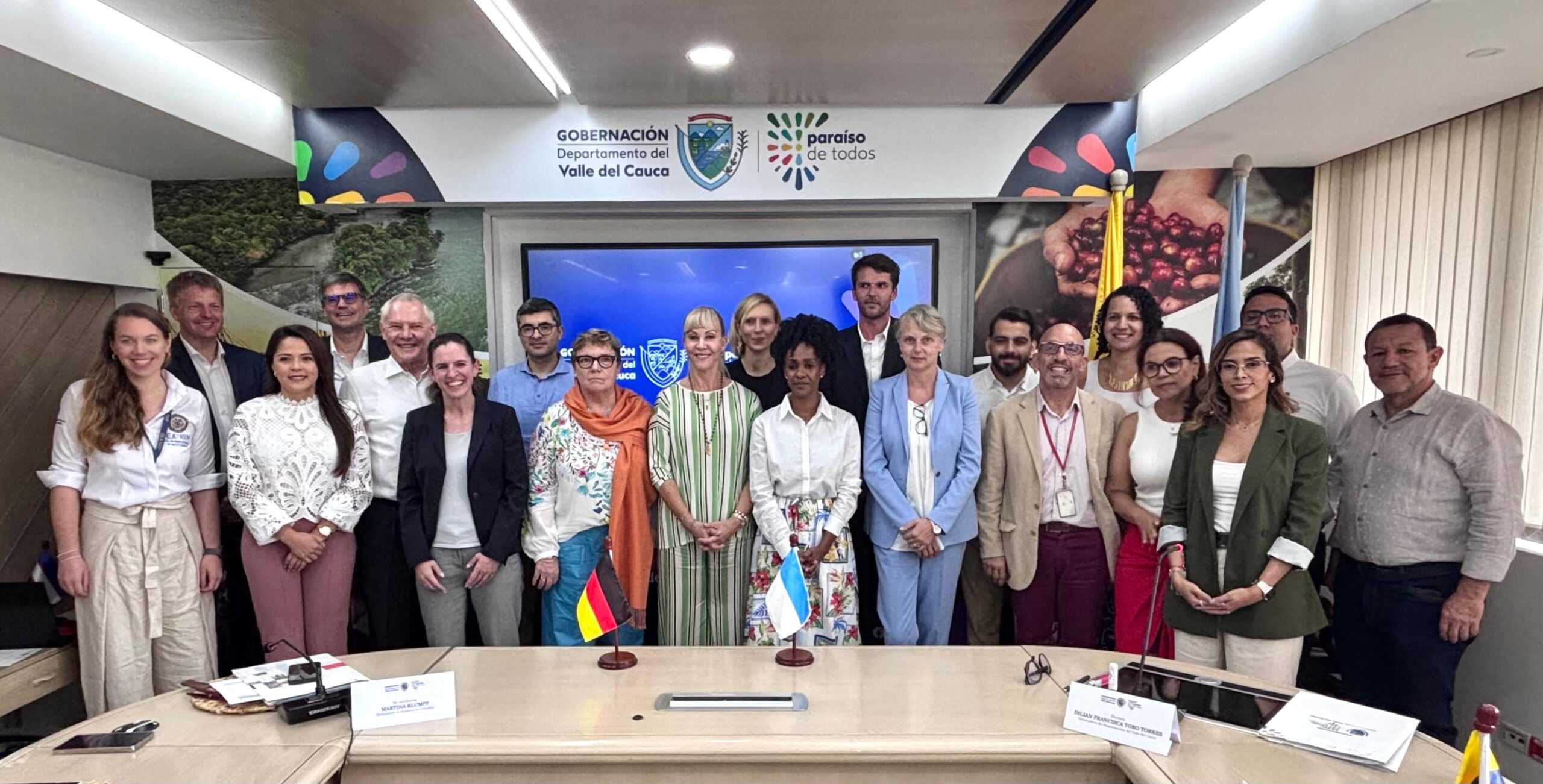On July 2nd, the official opening of the new office of the German Cooperation (GIZ) in the city of Cali took place, a strategic step that reaffirms Germany’s commitment to sustainable development, peace building and social justice in the Pacific region of Colombia.
This territorial presence aims to bring cooperation closer to the local context, allowing a more direct dialogue with regional actors, local authorities, social organizations and communities. In this way, it seeks to promote initiatives that respond to the priorities of southwestern Colombia, with a participatory, intersectoral approach adapted to the territory.
As part of this opening, the German ambassador to Colombia, Martina Klumpp, accompanied by representatives of the German Cooperation, held meetings with the governor of Valle del Cauca, Dilian Francisca Toro, the mayor of the city, Alejandro Eder, as well as with representatives of various entities of the department.
“Germany has realized for many years that cooperation with Colombia is of utmost importance for peace, climate change and environmental issues. For this reason, we see many of these issues represented here in Cali and Valle del Cauca (…) It is very pleasing to open the office in this city, as it will allow us to deepen our very good cooperation with a view to future issues such as biodiversity, climate change, energy transition, green hydrogen, among others,” said the ambassador.
In addition to the opening of the office, a workshop was held on national low-emission hydrogen policy for the articulation of the hydrogen hub in Valle del Cauca. During this space, a panel on the progress of the construction of the CONPES was held with the participation of the Ministry of Mines and Energy, the DNP and the National University of Colombia, with the support of the H2-diplo project, where the different aspects of the construction of this public policy were discussed. This event also included working groups focused on green fertilizers, sustainable aviation fuels (SAF), infrastructure and governance, in order to design a work plan for the implementation of this hub with local stakeholders.
Finally, the Energy in Transition- Powering Tomorrow exhibition was also inaugurated at the YAWA Center for Science, Art and Technology. It is an interactive learning experience about climate change, energy transition, sustainable mobility, green hydrogen, among others.
